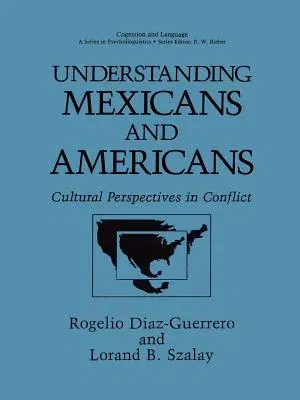Rogelio Diaz-Guerrero
(Author)Understanding Mexicans and Americans: Cultural Perspectives in Conflict (1991)Paperback - 1991, 31 March 1991

Qty
1
Turbo
Ships in 2 - 3 days
In Stock
Free Delivery
Cash on Delivery
15 Days
Free Returns
Secure Checkout
Part of Series
Cognition and Language: A Psycholinguistics
Part of Series
Advances in Experimental Medicine & Biology (Springer)
Part of Series
Cognition and Language: A Series in Psycholinguistics
Print Length
297 pages
Language
English
Publisher
Springer
Date Published
31 Mar 1991
ISBN-10
0306438178
ISBN-13
9780306438172
Description
Product Details
Book Edition:
1991
Book Format:
Paperback
Country of Origin:
US
Date Published:
31 March 1991
Dimensions:
27.69 x
21.03 x
1.83 cm
ISBN-10:
0306438178
ISBN-13:
9780306438172
Language:
English
Location:
New York, NY
Pages:
297
Publisher:
Series:
Weight:
712.14 gm

